Whenever any financial emergency comes, the first thing that comes to anyone’s mind is a loan. Loans are an easy and quick solution to tackle any financial emergency. Though loans have certain eligibility criteria, and if you fulfill all the qualifications, then only the lender offers you a loan.
These qualifications may vary from lender to lender. But some of the most common qualifications are, the applicant must be at least 18 years old, the applicant must be a citizen or resident of the U.S.A. and the applicant must have a stable income.
So if you do not have a job, it can be very difficult for you to get a loan. But you do not need to worry, in this article, we are going to tell you how to get a loan without a job. We will also tell you about all risks of getting a loan without a job, what factors you should consider while getting this loan, the types of loans that you can apply for, and basically everything that you need to know. So are you ready? Let’s dive into this.
How to Get a Loan Without a Job and Bad Credit?

Before jumping on to the main topic, let’s first understand what a loan is. A loan is basically where a lender lends some money to the borrower along with an interest rate and terms and conditions. And the borrower has to repay the loan amount to the lender along with the interest rate without a certain pre-decided period of time.
Two of the most important factors that lenders consider while offering you a loan is your employment and credit score. The lender only offers a loan if he is sure that you would be able to repay the loan. So most lenders only offer loans to people who have a certain monthly income. But if you are jobless, it might get difficult for you to get a loan.
Now you must be thinking about how to get a loan without a job. Well, you do not necessarily need a job in order to get a loan, you just need a monthly income. So if you receive a monthly income in any form like retirement aid, alimony, child support, unemployment benefit, etc, then you can get your hands on a loan no matter how bad your credit score is.
Questions You Must Ask Yourself Before Getting a Loan Without a Job
If you are thinking about how to get a loan without a job, make sure that you ask yourself the following questions, and then make your final decision regarding getting a loan with no job.
1. How Much Loan Amount Do You Need?
Do not just blindly apply for a lump sum amount of loan. Take your time, think about everything, and then see how much loan you actually need. Because since you do not have a job, even if you get a loan, the interest rate would be extremely high and you would end up paying a lot of money that can be avoided in the first place.
2. Is There Any Way to Avoid this Loan?
Now that you are well aware of the amount of money that you need, see if you can avoid the loan. If the amount you need is small, you can ask your friends or family to help you and then you can repay them the money as soon as possible.
Or if you have any extra property or item that can be given on rent or lease, you can get some money from there as well. If nothing works then ultimately you will have to apply for a loan only.
3. Would You be Able to Repay the Loan on Time?
If you have to take a loan, you can apply for pre-qualification to see what loan amount, loan term, and the interest rate you would get. See if you would be able to manage your expenses and the loan with your current income. If it does not seem feasible, try to avoid the loan.
4. Are You Well Aware of the Risks and Consequences?
Before getting a loan without a job, it is very important to be well aware of the risks. Do your research and see what would happen if you are not able to repay the loan on time. See if you would be able to deal with the worst consequences or not.
These 4 questions will help you decide if you should actually move ahead with the loan or not, in case you are jobless.
Major Risks of Getting a Loan Without a Job
In this section, we are going to tell you about the most common risks of getting a loan without a job. Make sure that you consider all these risks before you get loan with no job.
1. Can Damage Your Credit Score
Even if you delay the payment of a single loan installment, it will end up decreasing your credit score. If you have got a secured loan, you will end up risking your collateral, and if it is an unsecured loan, if you delay the installment payment for more than 180 days, the lender can declare your account as charged off. It will end up giving a permanent dent in your credit report and you would not be able to get any loan, credit card, or even credit limit increase for the next 7 years.
2. High-Interest Rate and Fee
If your credit score and monthly income are good, the lender easily offers you a loan with a low-interest rate. But a low credit score and no job can be the worst combination in the case of a loan. The lender would consider you as a high-risk borrower due to your low creditworthiness, hence if you get a loan no job, the interest rate and other fees like origination fees and late fees would be too high.
3. Lower Loan Amount
Since you are unemployed and might have a small monthly income, the creditor or lender will only offer you a small amount of loan. But if you want to get a higher amount in loan, you can submit some of your valuable items as collateral with the lender. But you will have the risk of losing your collateral if you fail to repay the loan on time.
4. Short-Term Loans
Even if you get loan no job, the loan term would be short. The maximum loan term you might get would be 2 years. If you are not able to repay the loan on time, you would have to face its consequences.
Personal Loans for Unemployed People
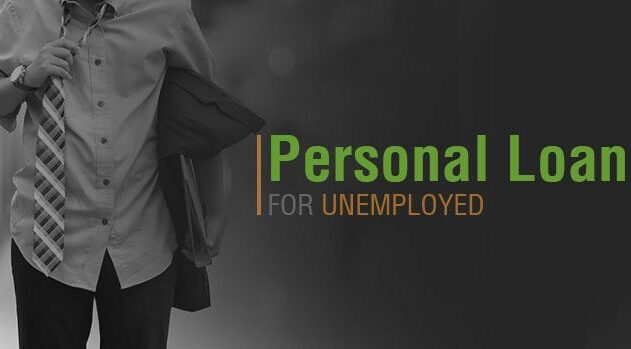
Are you still thinking about whether can you get a loan without a job? Well, yes, you can definitely get loan with no job. If you are wondering how to get a loan with no job, you must consider going for personal loans. Personal loans are basically those loans where the lender does not ask you why you need the loan amount.
They just deposit the loan amount into your bank account and you can use that money for what so ever purpose you want. Though some lenders might have some restrictions regarding where you can use the loan funds. You can easily find many lenders that will offer you personal loans for various purposes like personal unemployment benefits loans. There are basically 2 types of personal loans:
- Secured Personal Loans
- Unsecured Personal Loans
1. Secured Personal Loans
As the name suggests, secured loans are those loans where you need to secure your loan with some collateral, then only the loan amount is deposited into your bank account. You can put anything as collateral that has some value, like your car or jewelry.
These loans are generally for people with bad credit scores so that if they fail to repay the loan, the creditor can get the loan money by selling the collateral. Generally, the value of the collateral is equal to the loan amount. Since security is submitted to the lender and he is sure he will get his money back, the interest rate and other fees for a secured loan are low.
2. Unsecured Personal Loans
These loans are just the opposite of secured loans. This means that you do not need to give any collateral or security to get this loan. You can use this loan as a loan for unemployed mothers or loans for self-employed. Here, the money of the lender is at risk because of the absence of collateral so the interest rate and fees are high. Moreover, the lender has the right to declare your account as charged off, in case you do not repay the loan on time.
Alternatives to Personal Loans
Now that you are well aware of the things like whether can you get a loan without a job and how to get a loan without a job, here we will be telling you about the alternatives to personal loans. So if you think that a personal loan is not a good option, you can go with any of the following options to get loan with no job.
1. Car Loans
A car loan is used to finance the purchase of a vehicle. The loan is usually extended by a bank or other lending institution, and the borrower repays the loan amount plus interest over a predetermined period of time. Car loans can offer a convenient way to finance a vehicle purchase, as they allow you to spread the cost of the vehicle over several years.
In a car loan arrangement, the lender provides the funds needed to purchase the vehicle and the borrower agrees to repay the loan over a fixed period of time, with regular payments that include both principal and interest. The lender retains a lien on the vehicle as collateral for the loan until it is fully repaid. If the borrower fails to make the payments as agreed, the lender may repossess the vehicle.
However, it’s important to keep in mind that a car loan also adds to the total cost of the vehicle, as you’ll be paying interest on the loan in addition to the purchase price of the car. If you need a loan for a car then instead of going for a personal loan, you can get a car loan. It will come with a comparatively low-interest rate.
2. Co-Signer Loans

If you do not have a job and you are wondering how to get a loan without a job, then you can consider cosigner loans. A co-signer loan is a loan in which a person, in addition to the borrower, assumes responsibility for repaying the loan. The co-signer is effectively a secondary borrower and is obligated to repay the loan if the primary borrower fails to do so.
Co-signer loans are often used by individuals who do not have a strong credit history or income to secure a loan on their own, but who have a friend or family member willing to co-sign for them. By co-signing for the loan, the co-signer is agreeing to repay the loan if the primary borrower is unable to make the payments.
Co-signing can have a significant impact on the cosigner’s credit score, and if the primary borrower fails to make the payments, the co-signer will be pursued for repayment.
3. Home Equity Loans
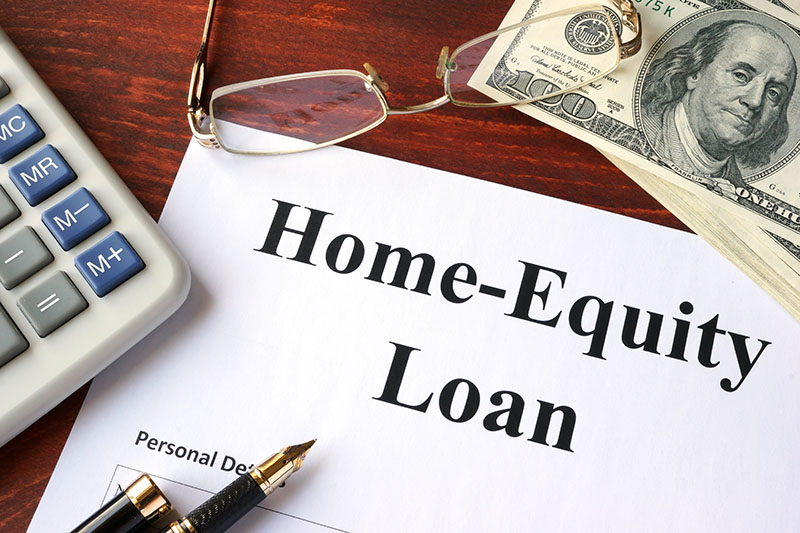
A home equity loan is a type of loan in which the borrower makes use of the equity keeping their home as collateral. Home equity loans for bad credit generally come with a fixed interest rate, which means that the interest rate does not change over the life of the loan. The loan is usually repaid over a set period of time, typically 5 to 15 years, with fixed monthly payments that include both principal and interest.
Home equity loans can offer a convenient way to access the equity in your home, but it’s important to carefully consider the terms of the loan and the impact on your financial situation before taking out this type of loan. But if the borrower is unable to make the loan payments, the lender may foreclose on the home and take ownership of the property.
4. Credit Card
A credit card is a payment card that allows the cardholder to borrow money from a financial institution to make purchases or withdraw cash. The cardholder is expected to repay the borrowed amount, along with any interest or fees, according to the terms of the card agreement.
Credit cards offer a convenient way to make purchases and access funds, as they can be used anywhere the card network (such as Visa, Mastercard, etc.) is accepted. They also provide a way to build credit, as timely and responsible use of a credit card can help to improve a person’s credit score. So if you own a credit card, you do not need to worry about applying for a loan again and again, you can borrow a fixed amount of money every month.
5. Cash Advance
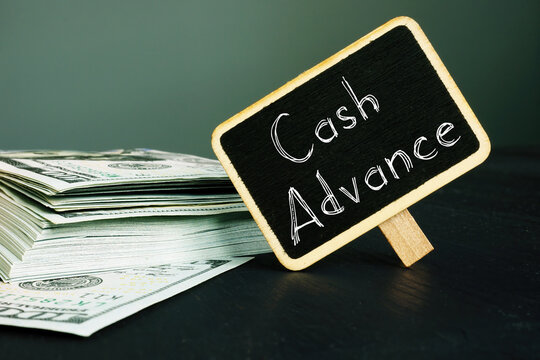
If you are a credit card holder, this option is for you. A cash advance is a feature of some credit cards that allow cardholders to withdraw cash from an ATM or other banking institution using their credit card. The cash advance is essentially a short-term loan that is provided by the credit card issuer and is expected to be repaid, along with any fees and interest charges, according to the terms of the credit card agreement.
Cash advances are typically more expensive than regular credit card purchases, as they often come with a higher interest rate and additional fees. For example, the credit card issuer may charge a cash advance fee, which is a percentage of the amount of the advance, or a flat fee per transaction.
6. Line of Credit
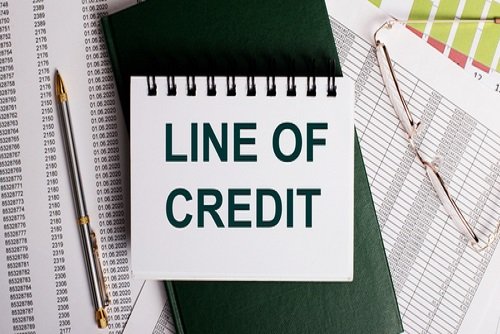
Are you unemployed and wondering about can you get a loan without a job? Well, you can consider a line of credit. A line of credit is a type of loan that provides a borrower with access to a specified amount of funds that can be borrowed and repaid as needed. Unlike a traditional loan, which provides a lump sum of money that must be repaid over a set period of time, a line of credit allows the borrower to access funds up to the credit limit as needed and repay the funds as they are used.
Lines of credit are often used for a variety of purposes, including to cover unexpected expenses, to make home improvements, or to finance a small business. They can also be used as an alternative to credit cards, as they often come with lower interest rates and more favorable terms.
7. Payday Loans
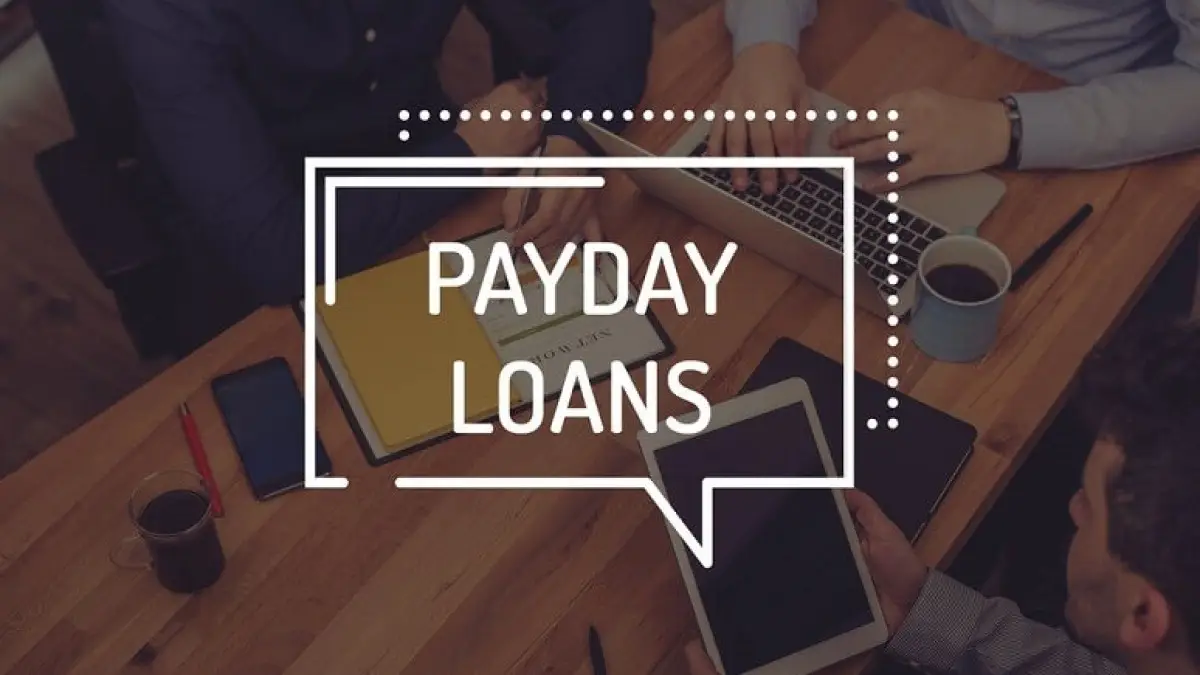
Payday loans are a type of short-term loan that are typically used to cover unexpected expenses or to tide a borrower over until their next payday. These loans are designed to be quick and easy to obtain, with approval based on a borrower’s current income and employment status, rather than their credit history.
The loan amount is usually small, typically ranging from a few hundred to a few thousand dollars, and is expected to be repaid in full, along with any fees and interest charges, on the borrower’s next payday. This type of loan is often marketed as a way to help people meet emergency expenses or unexpected bills.
However, payday loans can be very expensive and come with high fees and interest rates, sometimes reaching 400% or more. In addition, the short repayment period and high cost of borrowing can make it difficult for borrowers to repay the loan, leading to a cycle of debt.
8. Debt Consolidation Loans
Debt consolidation loans are a type of loan used to pay off and simplify existing debt by combining multiple bills into a single, lower-interest payment. The idea behind debt consolidation is that by consolidating high-interest debt into a single loan with a lower interest rate, the borrower can reduce their monthly payments and simplify their debt repayment.
While debt consolidation loans can be helpful in reducing monthly payments and simplifying debt repayment, they are not a solution for everyone. You must be careful while selecting a debt consolidation loan with favorable terms and must have the discipline to use the loan only to pay off debt and avoid accumulating more debt.
Also, it is important to be aware that debt consolidation loans will not erase the underlying debt. Moreover, missed or late payments on a consolidation loan can still negatively impact a borrower’s credit score.
9. Debt Management Plan
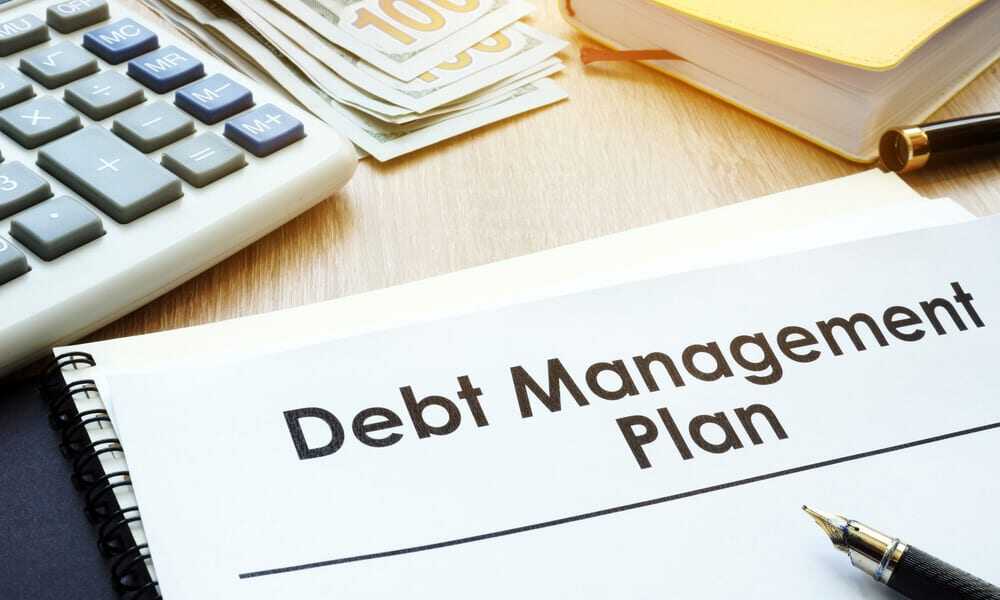
If you have some ongoing loans but cannot manage to pay them on time then a debt management program might be useful for you. It is a repayment program that helps individuals repay their debt over time through a structured payment plan. The goal of a debt management plan is to help individuals pay off their debt in full while also reducing their monthly payments and overall interest charges.
A debt management plan is typically offered by a non-profit credit counseling organization or a financial advisor. The first step in creating a debt management plan is to provide the credit counseling organization with information about the borrower’s financial situation and debt.
The organization then works with the borrower’s creditors to negotiate lower interest rates and monthly payments. The borrower then makes a single monthly payment to the credit counseling organization, which distributes the funds to the creditors according to the agreed-upon plan.
10. Family and Friends
If nothing works, your friends and family are always there to help you. If you do not get a loan, you can ask your friends and family to lend you some money. But make sure that you repay them the money as soon as you can. Because no matter how good the relationship is, if you do not repay them the money, it can result in a loss of trust and internal differences. So only go for this option if you are 100% sure that you would give them their money back.
Important Factors That Lenders Consider While Offering a Loan
A lender cannot offer a loan to every person in need, because that way they will end up risking their money. So in this section, we are going to tell you about some of the important factors that a lender considers while determining whether they should give you a loan or not.
1. Stable Income
Before offering you a loan, the lender wants to find out if you would be able to repay the loan or not. Lenders only offer a loan to people who have a job. If you do not have a job but still have a stable monthly income then you have a good chance of getting a loan.
The lender can consider the following benefits as your income:
- Child support
- Alimony
- Retirement benefits
- Disability benefits
- Unemployment benefits
- Annuities or pensions
- Social security payments
- Interest and dividends
- Rental Property
- Trust funds
So now you do not need to worry about how to get a loan without a job and bad credit. Even if you do not have a job, but receive a stable income in any of the about mentioned forms then you would be able to get loan with no job.
2. Credit History
In order to understand how you manage your loans and finances, a lender will check your credit history. If they find multiple hard inquiries then your chances of getting a loan will decrease. Moreover, if there are charge-offs, credit pulls, bankruptcy, etc, in your credit report, the lender will hesitate in offering you a loan. If you have a history of managing multiple loans successfully then lenders will easily trust your skills in managing loans and finances.
3. Credit Score
Your credit score is one of the most important factors that a lender will consider while giving you a loan. If your credit score is good, you will easily get a loan, but if you are a bad credit score holder and looking for how to get a loan without a job and bad credit, then things might get difficult for you. To get a loan at a reasonable rate, your credit score must be 600 or above. Otherwise, the interest rate would be too high for the loan.
4. Debt-to-Income Ratio
Last but not least, the lender will also look at your debt-to-income ratio to determine the amount of the loan. Your debt-to-income ratio is basically a measure of your gross income and the loan you will get. This helps the lender in deciding whether you would be able to repay the loan with your current income and what should be your monthly installment for the loan.
What If You Do Not Get a Loan?
If you need some money but multiple lenders have denied your loan request then it is time to realize that you would not get any loans. So now the only option left for you is to save some money or find a new source of income. Here are some of the things that you can consider if you do not get a loan.
1. Reduce Your Expenses
If you do not have enough money, then it is a clear sign that you need to save money. Try to make a monthly budget and follow it strictly. Most importantly, try to save at least 30% of your total income every month so that you can use that money in an emergency. Also, try to cut your expenses wherever you can.
Plan your budget in such a way that you spend 50% monthly income on your essential expenses like rent, groceries, food, etc, and 20% of your monthly income on your wants like dine-outs, clothes, shopping, etc. This way, you would be able to save 30% of your total monthly income.
2. Try to Build Your Credit Score
In order to get a loan, it is important to have a good credit score. So if you own a credit card, make sure that you pay its bill on time. If you have a loan, try to repay it as soon as possible. This will ultimately help you in building your credit score and your chances of getting a loan would increase.
3. Increase Your Income
If you have some extra skills like writing, digital marketing, graphic designing, etc, then you can easily find many online projects that will offer you good income. Also, if you have a free property, you can give it out on rent or lease to increase your income. This way, you will not need to worry about how to get a loan without a job.
4. Start Building an Emergency Fund
As you know, emergencies can come up at any time, so it is important to build an emergency fund so that whenever such a situation comes, you can use your own money instead of looking for a lender or family member that can give you some money.
Frequently Asked Questions (FAQs)
Q1. Where can I borrow money without a job?
In case you do not have a job, your chances of getting a loan from a bank or a credit union are too low. So it is better to go for direct lenders or online money lending services, they will offer you loans with no job and bad credit score. Though the interest rate for these loans would be extremely high.
Q2. Can I get a loan without a job?
In order to get a loan, you do not actually need a job, you just need a stable income. Having a stable income will assure the lender that you would be able to repay the loan. So the answer to your question, can I get a loan without a job, is yes.
Q3. How to get an emergency loan with no job?
If you are looking for how to get a loan with no job then you need to have a stable monthly income. It can be in the form of unemployment benefits, disability benefits, alimony, child support, etc. If you have an income, depending on the amount of income, you can get a loan from a bank, credit union, or online money lending services and direct lenders.
Q4. Can the unemployed take loans?
Yes, an unemployed person can get a loan, but the interest rate for these loans would be over the top. So even if you have a chance of getting a loan, you should try to avoid it.
Should I Get a Loan When I Do Not Have a Job?
If you are looking for how to get a loan without a job, we would not recommend you to get a loan with no job, because the risk is just too much. If you are not able to repay the loan on time, it can affect your credit report for years and you can even get stuck in a debt cycle. So if there are chances to avoid a loan, you must try to avoid it. But if you have no option other than getting a loan then you must try to repay it on time to avoid any hard consequences.
Author Profile
- Jennifer Garcia is an expert in the field of credit cards and related services. She has written extensively on a broad range of topics related to credit cards, including different types of offers and benefits, how to compare and choose the best cards for individual needs, and strategies for finding ways to use credit more effectively. She has been an invited speaker at conferences around the world to discuss her research into financial products. Her knowledge of the credit card landscape is unparalleled, with a deep understanding of how each offer or product works in relation to the rest of the industry. Jennifer’s work provides invaluable insight into how to make the most out of any credit product.
Latest entries
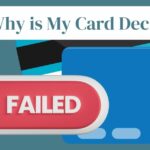 BlogFebruary 17, 2023Why is My Debit Card Declined When I Have Money – Reasons & Solutions
BlogFebruary 17, 2023Why is My Debit Card Declined When I Have Money – Reasons & Solutions BlogFebruary 16, 2023Where Can I Cash My Stimulus Check? (Get Experts Advice)
BlogFebruary 16, 2023Where Can I Cash My Stimulus Check? (Get Experts Advice) BlogFebruary 16, 2023Can You Cash a Check at an ATM? (Know Everything)
BlogFebruary 16, 2023Can You Cash a Check at an ATM? (Know Everything) BlogFebruary 15, 2023How to Add Money to Venmo Account? [5 Best Methods Explained]
BlogFebruary 15, 2023How to Add Money to Venmo Account? [5 Best Methods Explained]

